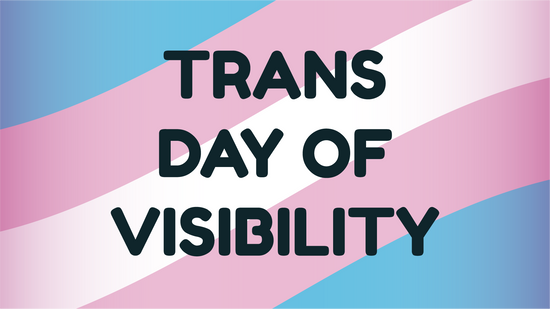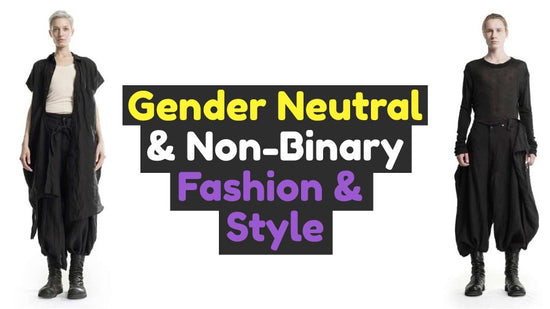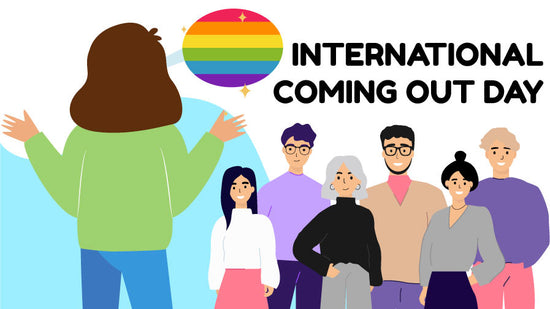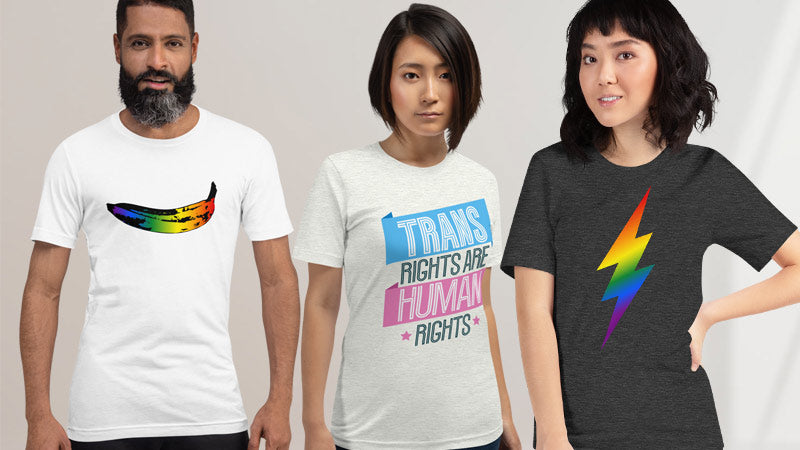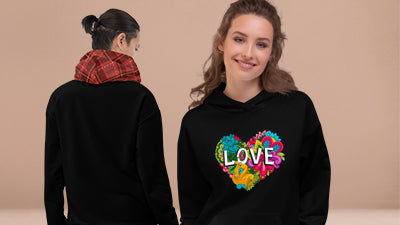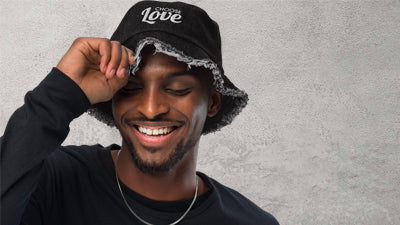International Pronouns Day

It's such a simple thing: Refering to a person in the language they say is appropriate for them and their gender. It's hard to believe that the use of pronouns would become one of the most contentious cultural topics of the century so far. But that's how it's played out.
Gleefully decried by the right wing conservative media in their battle against the cultural tide of change. And attacked by the populist masses, desperate to fight against anything that makes them feel uncomfortable.
It's a mark of how important it is to those who use pronouns different to those associated with the gender the were assigned at birth that an awareness day has been created specifically to move the discussion on this forward.
When Is International Pronouns Day?
International Pronouns Day happens every year on the third Wednesday of October. This year, that falls on October 18th 2023. It was first observed on October 17th 2018.
What Is International Pronouns Day?
International Pronouns Day was established to raise awareness about the use of pronouns that are different to those assigned at birth. This is usually Trans, Non-Binary and Genderqueer people, but can also be Gender Fluid and Intersex identities.
And it gives everyone a chance to underline the importance of using the correct pronouns for a person’s identity. It’s a time for everyone to redouble efforts to normalise the use of correct pronouns, and especially for cisgender people, to educate themselves about different pronouns and how they can use them to respect and empower others.
International Pronouns Day was founded by Shige Sakurai (they/them) of Pronouns.org, who’s been an LGBTQ+ rights activist since the 1990s, and is currently an educator, administrator and consultant for diversity and inclusion. Thank you Shige!
It’s a great day for people who use different pronouns to talk about the issues they face and remind their friends and family of what it means to them.
OUR PRONOUNS COLLECTION view the full collection
Why Is Using The Correct Pronouns Important?
Using the correct pronouns for someone is really just basic respect. If you’re a cisgendered man or woman, imagine how angry you’d get if you were constantly referred to as the opposite gender!
Or imagine if someone insisted on calling you the wrong name. You’d go mad.
Using the correct pronouns not only shows you care about the emotional wellbeing of the person you’re talking to, it also validates Trans, Non-Binary, Genderqueer, and Gender Fluid people in a world that so often excludes and s a simple action, but the positive consequences are huge.
Some languages, such as Hungarian and Finnish, don’t have gendered pronouns when referring to people.
Respecting people’s pronouns shows empathy, compassion and dignity. It can help maintain long-lasting friendships and relationships. Your friends will appreciate and trust you much more.
The opposite is also true. Misgendering someone can inflict incredible emotional pain and trigger mental health issues. While it’s true that some people are easygoing about the correct use of their pronouns, you should ALWAYS ensure you correctly gender someone. It’s incredibly insulting when we hear cisgendered people express relief that they won’t be pulled up when they misgender us. Because that allows them to think they don’t have to try.
People are going to have to put the effort in. All the time. Every time. If you make a mistake, apologise, quickly correct it and move on. And make sure you get it right next time. It’s going to require some rethinking on behalf of everyone.
People are going to have to put the effort in. All the time. Every time. If you make a mistake, apologise, quickly correct it and move on. And make sure you get it right next time. It’s going to require some rethinking on behalf of everyone.
It’s also worth noting that there is no legal obligation for companies and organisations to include anything other than binary pronouns or titles in forms or documents. This is staggeringly alienating for people who identify as Non-Binary and Agender.
The use of pronouns is still in flux in the corporate world. Few organisations have embraced the concept, and those that do will find they are able to pick and choose from the cream of gender-nonconforming candidates. This may not sound like a lot of people, but with the numbers of people identifying under the non-binary and trans umbrella rising rapidly this could make the difference between a good recruit and a great one.
Some brands get it incredibly wrong. X (formerly Twitter) decision to remove deliberate misgendering from its list of reportable abuse issues has caused a huge wave of anguish and contributed significantly to the drop in engagement and loss of revenue. It's also validated and emboldened those who tend to be on the angry side of life and who create toxic environments.
However, other organisations, according to Pronouns.com, have made it clear that intentionally or repeatedly using the incorrect pronouns could be evidence of discriminatory harassment or a hostile environment.”
This is good news for trans and non-binary people, as the law usually doesn’t have anything in place to protect them. If you use pronouns different to the ones assigned to you at birth, remember that it is your legal right to have your identity respected, and you are entitled to report people who refuse to do so. As the iconic phrase goes, “respect my existence or expect my resistance!”
Alternative Pronouns Are Not New
We hear so much anger and read so much pushback from cisgendered people who claim that the use of pronouns is a recent fad and they refuse to comply with this ‘woke nonsense.’ But the fact is that alternative pronoun use has been around for hundreds of years.
Examples of "they" being used in a non-gendered way to describe someone in the singular appeared in Geoffrey Chaucer's The Canterbury Tales in 1386. And there are examples scattered through literature ever since, including in Jane Austin’s Pride And Prejudice.
To the real reason for the pushback is because those people are simply comfortable with the blanket use of binary pronouns and can’t be bothered to make the effort to learn pronouns for each person. Even though they will learn someone’s name.
Back in 2019 an article in The Guardian highlighted a study, whose findings showed that “using a gender-neutral pronoun reduces mental biases that favour men, and boosts positive feelings towards women and LGBT people”. And that they “chip away at long-standing gender inequities”. Which makes it quite confusing as to why cisgendered women would be against their use.
What Are The Different Pronouns?
The traditional binary pronouns are he/him/his and she/her/hers. These are used by both cis and trans people.
They/them/theirs has always existed and can be used for plural groups of people or singular persons when their gender is not known, for example “to each their own.” In more recent decades, non-binary people and other people outside of the traditional gender binary have used they/them pronouns as a gender-neutral option.
Don’t listen to people who say singular they is grammatically incorrect, they don’t know what they’re talking about! (See, I just proved them wrong. And again.)
People have also developed specially tailored neopronouns that they feel fit them better than the pre-existing he, she or they. The list of these is extensive, including: Zie/Zim; Zir/Zis; Ey/Em; Eir/Eirs and Xe/Xem.
Many of these pronouns have been created for people who speak languages other than English, when there are no gender-neutral options available.
It’s also worth remembering that some people are using a combination of gendered and non gendered pronouns, such as she/they or he/they – this just means that this person is happy with either of those pronouns. If it sounds confusing or complicated, don’t worry! Most people are happy to talk about their pronouns if you ask respectfully.
How We Normalise The Use Of Pronouns
We should all be using pronouns when we introduce ourselves to new people to remove the awkwardness of doing it is removed. And we must also listen when others do it to make sure we remember. We’ve all heard the idiot who moans when someone uses their pronouns. Those people must be made to feel out of place. This is how we normalise the use of pronouns.
We can also wear pins or t-shirts with our pronouns to make it obvious to others. Why not get a nice shiny enamel one, durable enough for everyday wear?
And include our pronouns in our social media bios and after our names when we sign emails. At events such as book groups, everyone can introduce themselves with their pronouns. It doesn’t have to be awkward!
When you meet someone new, even if they don’t look trans or androgynous, it’s always a good idea to ask their pronouns. Sometimes when people are in the early stages of trying different gender presentations, someone asking their pronouns can be an easy way of starting an important conversation.
How To Get Involved In International Pronouns Day
Upload selfies or themed content using the hashtag #PronounsDay. Have conversations with your friends or family about pronouns and make sure everyone’s on the same page. Check your friends’ social media pages to see if they’ve updated their pronouns recently. Organise an event in your local community – why not bake cookies and write different pronouns on them with icing?
For organisations you can make introducing yourself using your pronouns normalised across the business, starting with those at the top. Ensuring that all company documents and staff passes have correct pronouns on and email signatures have pronouns by default.
Ensure that your HR department knows the pronouns people want to use and make sure they're used by senior staff and in internal communications. And make it clear that deliberate misgendering will not be tolerated. And most of all, take it seriously when these incidents are reported, and act quickly.
Celebrities Who Use Different Pronouns
THEY/THEM
Sam Smith, singer
Demi Lovato, singer
Janelle Monae, singer/actor (also she/her)
Ruby Rose, actor (also she/her)
Brigette Lundy-Paine, actor
Asia Kate Dillon, actor
Sara Ramirez, actor
V Pappas, former COO of TikTok
Indya Moore, actor
Alok V Menon, writer and activist
Kae Tempest, poet and musician
HE/HIM
Elliot Page, actor/writer (also they/them)
Ian Alexander, actor (also they/them)
Kade Gottlieb/Gottmik, drag king
Chella Man, actor and disability advocate
Jamie Raines/Jammidodger, YouTuber
SHE/HER
Arca, musician (also uses it/they)
Hunter Schafer, actress and model
Laverne Cox, actress
Hari Nef, actress
Kim Petras, singer
MJ Rodriguez, actress
Jamie Clayton, actress






